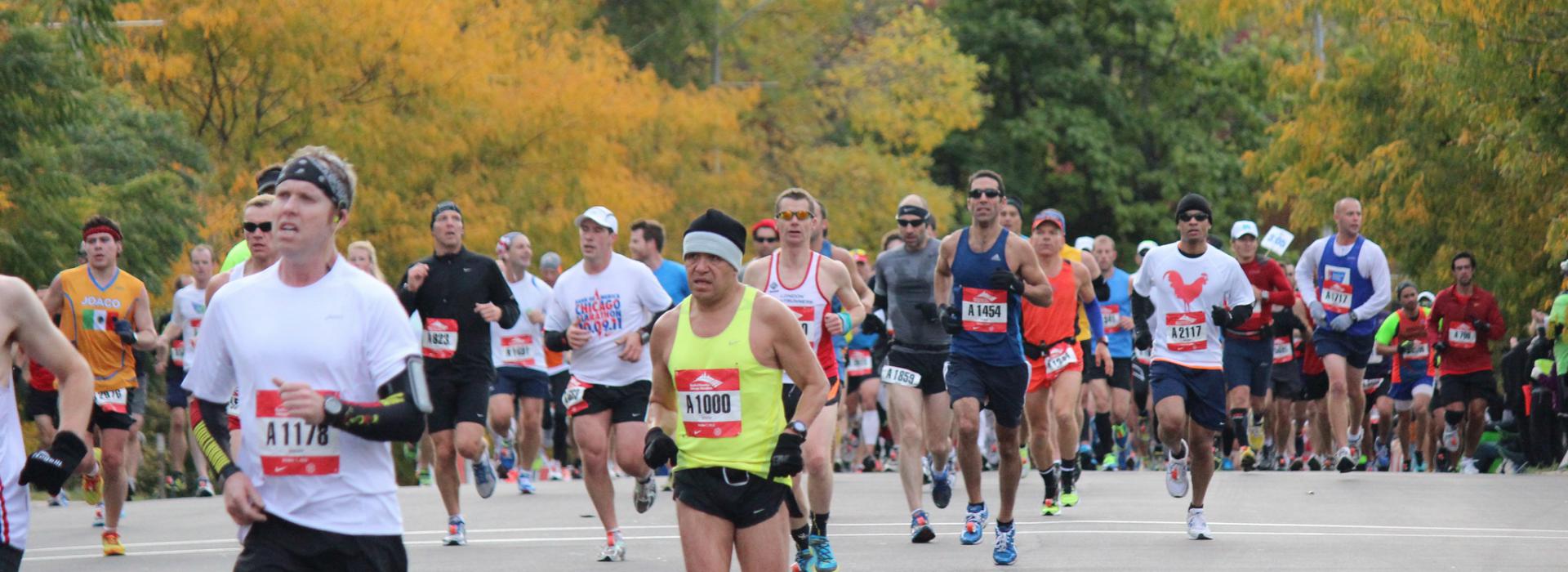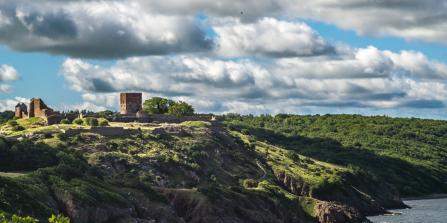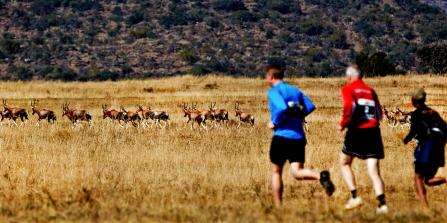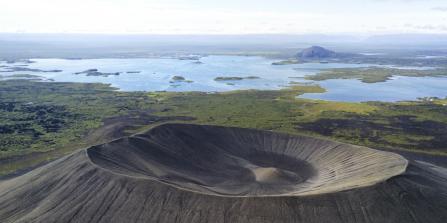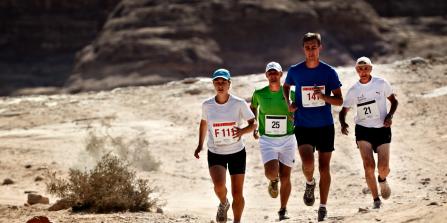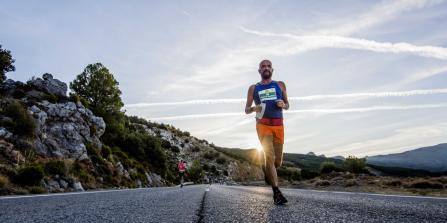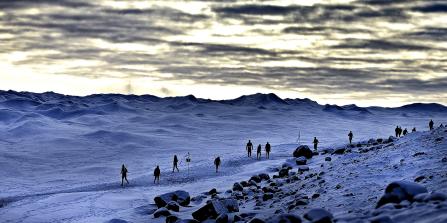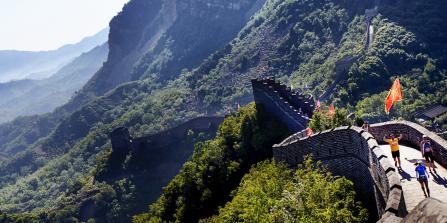The limit of 45,000 registered entrants is usually reached as early as 6 months before race day. The record-breaking number of runners is watched by 1.5 million spectators, making the streets of the Windy City crammed to capacity on Marathon Sunday.
The Chicago Marathon is one of the many city marathons that boasts a fast and flat course with no significant hills. The course starts in Grant Park by Lake Michigan. From here the route goes through the neighbourhoods of northern Chicago and all the way to the South side before it returns to Grant Park, taking the marathoners on a colourful journey through the many sides of Chicago. The crowds along the way are famed for turning up in large numbers and are extremely supportive.
In the Chicago Marathon’s 30-year history, the race has seen some of the most record-setting and exciting battles at the finish line. One of the most dramatic endings occurred in 2006, when Kenyan Robert K. Cheruiyot slipped right before breaking the finish tape. Cheruiyot fell on his back and hit his head on the asphalt. But he was lucky enough to slide forward in the fall causing his timing chip to cross the finish line and making him the winner, 5 seconds ahead of the slightly confused runner-up Daniel Njenga. Cheruiyot suffered a concussion, was taken to the hospital and discharged a couple of days later.
Race favourite Moses Mosop of Kenya won the 2011 edition of the Chicago Marathon with a smashing time of 2:05:37 setting the new course record. Ahead of American favourite Ryan Hall by almost two and a half minutes. And Liliya Shobukhova from Russia won the women's race in 2:18:20.
Feel like running Chicago Marathon in October 2015? Registration and further information on Bank of America Chicago Marathon is found at the official website
The 2007 meltdown at Chicago Marathon
The 2007 race of the Chicago Marathon, on Sunday 7 October 2007, ended in chaos and commotion when temperatures reached an all time high of 88º F (31º C) two hours after race start. By this time, the first elite runners were crossing the finish line while most first-timers and other runners were not even close to halfway. Several runners fainted or vomited because of the heat, and when the water stations started running out of water, the organisers had to close the race down. Everybody who had not crossed the half marathon mark 3.5 hours after start time was driven to the finish area in Grant Park.
Naturally, this caused quite a ruckus among the runners who had trained for months and spent a great deal of money on entry fees, travelling expenses and accommodation. The organisers claimed that they were forced to call off the race due to safety reasons as emergency rooms were full and the medical staff was overburdened. The disappointed runners maintained that the organisers should have been better prepared – for example by checking the weather forecasts and providing enough water to keep everyone hydrated. However, we’re not pointing fingers at anyone here, only offering our sympathy to the frustrated runners and the race organisers who had to make a tough decision.
Runners complained about many water stations running out of both water and Gatorade and runners had to turn to fountains and generous spectators to get hydrated and to cool down their sweltering bodies. 9,000 registered runners checked the weather forecasts and stayed at home, while 11,000 runners did cross the start line but not the finish line. Some of these dropped out at their own free will and busses picked up the rest of them after the course was closed. According to eye witnesses, some runners seemed to welcome the excuse to escape the steaming sauna that the race had turned into. Others were, of course, sorry to see months of training go down the drain. Only 24,000 participants crossed the finish line, one of the lowest numbers ever in the Chicago Marathon history.











